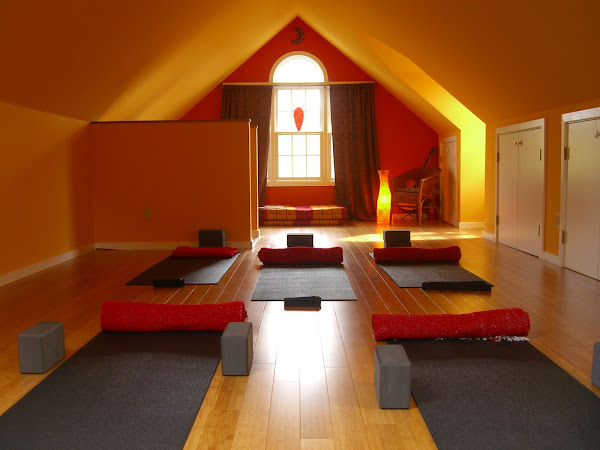
Staying present isn’t easy for me.
Sure, I’ve read all the books, I understand the philosophy and, make no mistake, I’m on board. I’ve embraced the concept with no less than Howard-Dean-after-the-Iowa-caucus level zeal. But I’m a daydreamer of such epic proportions that trying to keep me present would give a Zen master an ulcer.
I’ve always been a daydreamer, but it wasn’t until I was a teenager that I realized, through the efforts of one peculiarly persistent English teacher, what an intractable habit it is. This teacher was extraordinary. She was one of my favorites. She was also a little crazy.
Ms. Jenkins (I’ll call her Ms. Jenkins instead of her real name, although I doubt she would mind or take exception to being called crazy) had the ability to see right through me. Most teachers saw only a conscientious student who got her work done on time and did it well, but Ms. Jenkins saw a daydreamer who frequently checked out of her class, leaving behind a body set on autopilot to nod occasionally.
Oh, she saw all right. And she did not find it particularly endearing. Or so I’m guessing because whenever I drifted off into a daydream, she’d hurl a piece of chalk at me.
In her defense, I imagine she was awaiting that venerable day on which I’d actually be paying attention, nimbly catch the chalk in one hand, raise an eyebrow, and toss the chalk back to her along with a witty rejoinder. Life lesson learned. Unfortunately, that didn’t happen. Time and again the chalk would hit me - on the cheek, on the shoulder - or when her aim was slightly off, shatter on the desk in front of me or hit my nearest neighbor (sorry, Ted). Once, apparently not finding any chalk handy, she threw her shoe. Now THAT got my attention.
From time to time, I find myself wishing I still had Ms. Jenkins around to throw chalk at me to keep me present. I don’t want to miss my life like I missed her lessons. Some parts of my life really hurt….and some are frustrating and tiring….and many are beautiful and fulfilling beyond expression. And I want to experience them all.
*****
I have a son who’s now 6 and he has an unidentified neurological disorder. A few years ago my husband and I were told that his disorder was likely degenerative and fatal, and we lived with that likelihood, off and on, for more than two years. It’s impossible to describe how it affected me other than to say it shredded my insides until I was nothing more than dust.
But humans are hardwired to acclimate to even the most abhorrent of circumstances, and I learned to live under the guillotine of that impossible possibility. Don’t get me wrong: I didn’t embrace nor accept that I would lose my son. And I still dissolved into a sobbing, gasping, snotty mess from time to time. But I also eventually got back to living life: reading Magic Tree House books with my daughter, crashing toy monster trucks around the house with my son, watching the loveliness of the clouds moving across a blue sky, enjoying many of these moments more fully, wholly. Coming face–to-face with a future I couldn’t abide propelled me to stay in the present.
And I found freedom there. In the present, tomorrow’s laundry, next week’s meeting, and the mountain of work I need to get done before the end of the month only matter in practical terms – not emotional ones. In the present I don’t relive what I would have done, should have done, differently yesterday. There’s no knot in my stomach over what might be or what was….only absorption in this person, this scent, this activity or this scene in front of me.
In time, we found out through further testing that it was unlikely my son’s disorder was degenerative after all, and during the giddy, euphoric time that followed, I kept close to me the lessons I’d learned during darker days. But only for a while.
I’ve heard the precept that life is like a rotating wheel and one must try to move away from the wildly spinning outer edges to the still center, the present, where there’s no uncertain movement. Ahhh, being in the middle, in the stillness. But why is it so easy to get swept back out into the hubbub? And is it just a wild coincidence that centrifugal force applies not only to actually being in a physically rotating body but also applies equally aptly on the other side of the metaphor to life itself?
For me, it’s during times of difficulty that epiphanies and insights come skating in by the dozens to grab me by the shoulders and shake me until I just get it. But when the anxiety wanes and life becomes more ordinary, my epiphanies tend to get buried in the clutter of the day to day.
I find that I’ve begun letting myself get pulled into the vortex again. Increasingly, stream-of-consciousness thoughts make their autonomous march across my brain while attendant emotions swing merrily through my neurons. “I forgot to get cat food today, I’ve got to remember that on the way home ... if that cat peed on my new Tibetan rug, I swear I’ll skin it … when I dropped off the kids this morning, did I call the school secretary by the wrong name ... oh, no, I think I did … mortifying … I hope the kids’ school year goes well ... what if his seizures pick up again and it was like last year … how would we get through that again ….”
I need to feel the sting of a piece of flying chalk to remind me to get out of my head and back into the world. Fully.
I have no answers. I only know that when I’m in the present, whether that present is difficult, wonderful, or both, life itself fills the entire screen of my mind. The colors of this world are more vivid, the sounds more nuanced, the interactions more genuine.
I’ve started to meditate to practice this art of staying in the moment. I’m practicing taking my seat both physically and metaphorically. I’m practicing attending to my breath instead of all the monkeys in my head. I’m practicing because I don’t want to keep turning around to discover another of life’s beautiful moments passed by with only the merest of notice because I wasn’t really there.
I’m practicing being present because that’s where I want to be. That’s where my life is.







